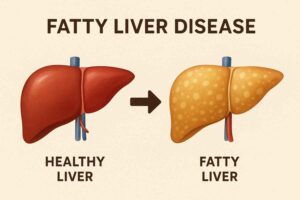Introduction:
To keep our bodies healthy and filter waste, our kidneys are vital. However, were you aware that even simple over-the-counter medications might harm your kidneys? Certain drugs have the potential to cause inflammation, lower blood flow to the kidneys, or even chronic kidney disease.
This post will discuss the top ten medications that can harm your kidneys and how to keep them healthy. It is essential to comprehend how drugs impact your kidneys, whether you already have renal issues or wish to prevent more.
How Can Medication Cause Kidney Damage?
Your kidneys are essential to maintaining the equilibrium of your body. They manage blood pressure, filter waste, and maintain fluid levels. By decreasing blood flow or inducing inflammation, some drugs can impair kidney function. This may eventually result in either acute or chronic renal damage.
Taking the incorrect drugs can raise the risk of kidney problems for persons who already have kidney disease or other medical concerns. The first step to kidney protection is understanding which medications are dangerous.
Top 10 Drugs That Cause Kidney Damage

1. Nonsteroidal Anti-Inflammatory Drugs
NSAIDs are popular painkillers, including naproxen and ibuprofen. These medications work well to relieve pain, but if taken excessively or in large quantities, they might harm the kidneys by decreasing blood flow. Chronic renal disease is associated with long-term NSAID use.
2. Antibiotics
Certain antibiotics can be harmful to the kidneys, especially aminoglycosides like gentamicin. Acute renal injury and kidney damage can result from excessive or prolonged use of certain medications. Antibiotics should only be used as prescribed by a medical professional.
3. Diuretics
Diuretics, sometimes referred to as water tablets, are used to treat heart failure and excessive blood pressure. They aid in the removal of extra fluid from the body, but they can also cause dehydration by decreasing blood flow to the kidneys. Kidney dysfunction may become more likely as a result, particularly in elderly persons.
4 Proton pump inhibitors (PPIS)
PPIs are drugs used to treat heartburn and acid reflux. Although they work well to control stomach acid, prolonged usage has been connected to chronic renal disease. Over time, these medications may result in irreversible damage by inflaming the kidneys.
5. Antiviral Drugs
Acyclovir, which is used to treat herpes, is one antiviral medication that might cause kidney damage by forming crystals in the kidneys. Individuals using these drugs should have regular renal function tests and consume lots of fluids.
6. Chemotherapy
Cisplatin is one chemotherapy medication that might be harmful to the kidneys. These potent drugs have the potential to impair kidney function and cause acute renal damage. To avoid kidney damage after therapy, cancer patients must be closely watched.
7. lithium
Over time, lithium, which is used to treat bipolar disorder, can have an impact on the kidneys. Lithium users require routine renal function testing to identify any possible issues early because long-term use of the drug might result in chronic kidney disease.
8. ARBs and ACE Inhibitors
By relaxing blood arteries, these drugs treat heart failure and excessive blood pressure. ARBs and ACE inhibitors, however, can decrease blood flow to the kidneys in patients who already have kidney issues, which could deteriorate kidney function.
9. Dyes of Contrast
Some persons, particularly those who already have kidney problems, may suffer kidney damage as a result of the contrast dyes used in imaging procedures such as CT scans. The kidneys can be protected by consuming water both before and after a procedure.
10. Supplemental Herbs
Aristolochic acid is one of the chemicals in several herbal supplements that can be harmful to the kidneys, despite their apparent innocuousness. Before utilizing any herbal products, it is imperative to speak with a doctor, particularly if you have a renal illness.
11. Vitamin d supplement overdose
Vitamin D supplements help meet your vitamin D needs and support immunity, but taking too much can damage your kidneys. Sunlight doesn’t cause this issue because your body naturally stops making vitamin D once it has enough, so you can’t overdose from sunlight.
Safer alternatives of this drugs
What can i take instead of ibuprofen?
f you’re trying to stay away from ibuprofen because of kidney-related safety concerns, here are some safer drugs. But remember that each person’s body is unique, so you should always double-check with a doctor if you have kidney issues.
- Acetaminophen (Paracetamol) : It is used for headaches, fever, and general body pain, but it did not exceed the daily limit of 1500 to 2ooo mg (approx 3 to 4 tablets ) per day because high doses can harm the liver.
- Topical Pain Relievers : Topical pain relievers are these pain relievers that are used in our daily life like Volini Gel ,Moov Cream,Iodex Balm, Zandu Balm .
What is the alternative to PPIs?
You can use H2 blockers that are helpful to reduce stomach acids but not as strong compared to PPIs, but an overdose can lead to kidney problems. That’s why most doctors also recommend adding healthy lifestyle changes along with the medicine.
How to Protect Your Kidneys from Medications?
You can take precautions to keep your kidneys safe while still taking the drugs you require:
- Consult Your Physician
: Prior to beginning any new drug, especially if you already have renal issues, always get advice from your physician. Your physician might change the dosage or recommend different therapies.
- Use NSAIDs cautiously:
Although NSAIDs can help with pain, it’s important to use them sparingly. If you require chronic pain management, ask your physician about safer options.
- Remain Hydrated:
Getting enough water aids in the kidneys’ ability to more effectively filter waste and prescription drugs. Drinking plenty of water is crucial if you’re taking any medications that could harm your kidneys
- Monitor Kidney Function:
Early indicators of kidney impairment can be found with routine kidney function testing, such as blood and urine tests. Make sure your doctor keeps an eye on your kidney health if you’re taking any medications that could damage them.
- Control Long-Term Illnesses:
To lessen the strain on your kidneys, manage diseases like diabetes and high blood pressure. A balanced diet and regular exercise are two healthy lifestyle choices that can help prevent kidney disease
Top 5 Best Fruits for Kidney Health.

1. Apples
High in fiber and low in potassium
aids in lowering inflammation and cholesterol
2. Berries (strawberries, raspberries, and blueberries)
low in potassium and high in antioxidants.
defends against oxidative damage
3. Grapes
Resveratrol, which is found in grapes, promotes kidney and heart function.
Hydrating and potassium-deficient by nature
4. The pineapple
A fantastic substitute for tropical fruits high in potassium
Packed with the anti-inflammatory enzyme bromelain
5. Cherries
Antioxidant-rich to combat oxidative stress
lowers uric acid, which is good for renal function.
Is there any permanent solution for kidney damage?
A new international study by University of Utah Health has brought real hope for people with kidney problems. Researchers found that a fatty substance in our body called ceramide can seriously damage the mitochondria—the “energy makers” inside kidney cells—which can lead to acute kidney injury. In experiments on mice, scientists tested a new drug that lowers ceramide levels, and it successfully protected the kidneys even under stressful conditions. This finding suggests that in the future, kidney damage might not only be prevented but possibly reversed. The study also showed that measuring ceramides in urine could help doctors detect kidney issues much earlier. Human trials are still needed, but this research gives strong hope that treating kidney disease may become much easier in the coming years.
Medically Reviewed By: Trusted health sources including Mayo Clinic, Harvard Health, National Kidney Foundation, and published research on PubMed.
Frequently Asked Question
1. What Are The First Signs of Kidney Diseases?
1. Variations in Urination
The body’s ability to produce and eliminate urine can be impacted by kidney disease. The following are common symptoms associated with urination:increased frequency of urination, decreased urine output, foamy or bubbly urine, hematuria (blood in the urine), and difficulty or discomfort during urination.
2. Swelling
The kidneys are essential to the body’s ability to maintain fluid equilibrium. Fluid can build up when they aren’t working correctly, which can cause swelling in various body regions. Legs, ankles, feet, and the face are the most frequently impacted locations.
2. How to Prevent Kidney Diseases?
1. Consume a Nutritious Diet
Blood lipids (blood fat) and blood pressure can be reduced with a nutritious eating plan, such as the Mediterranean diet and the DASH (Dietary Approaches to Stop Hypertension) diet.
2. Work out
We’ve said it before, and we’ll say it again: you need to work out. Maintaining a healthy weight, managing blood pressure and cholesterol, increasing strength and endurance, and reducing the risk of developing diseases like diabetes, heart disease, and renal disease are all made possible by exercise.
3. How to Prevent Kidney Failure in Diabetes?
In diabetics, careful glucose (sugar) management can help prevent or reduce the progression of kidney disease. To assist in controlling your glucose levels, you should heed the dietary and medication recommendations of your physician and other healthcare team members.



